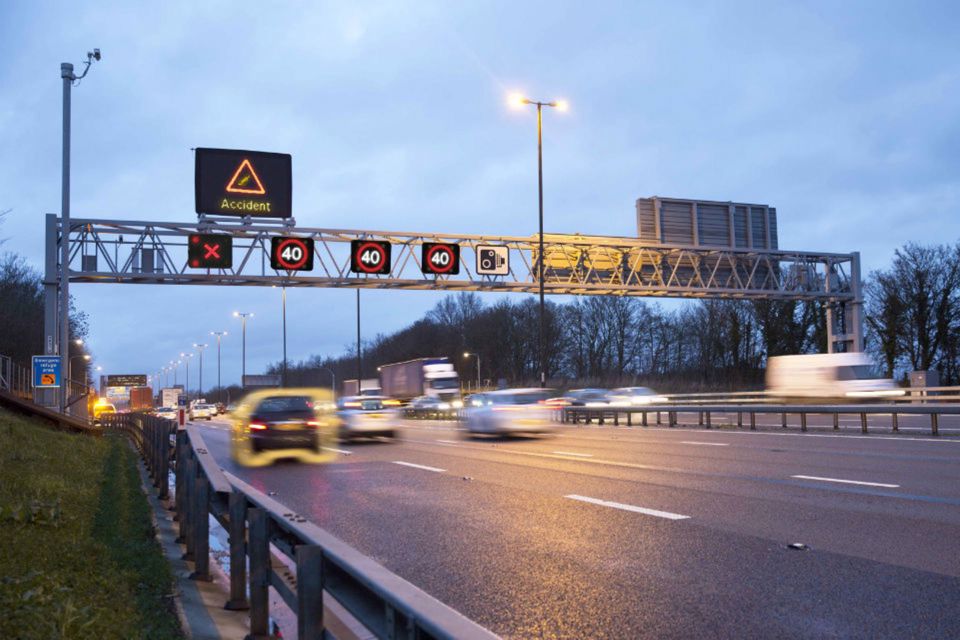Funding awarded to six trials of road safety technology by National Highways, includes a project to identify when vehicles stop on the strategic road network (SRN).
The stopped vehicle detection verification system, developed by CrossTech, builds on the successful automated computer vision inspection platform from the rail industry, called Hubble.
The trial will test the performance of this system by applying its computer vision analysis to over 100 hours of CCTV footage and comparing the outputs with event data from National Highway’s own systems.
Earlier this year, concerns were raised about whether radar technology to detect stranded vehicles used by National Highways was reliable.
Figures obtained by Panorama revealed hundreds of incidents when crucial safety equipment was out of action, leaving vehicles stranded in fast-flowing traffic.
Furthermore, problems with the technology used on smart motorways to identify stopped vehicles in live lanes were flagged by the Office of Rail and Road (ORR) in a safety report published in December 2022.
National Highways launched a competition to find new ways to manage hazards on the SRN, with six winning ideas to be trialled.
Working with Connected Places Catapult, the ‘Hazard Protection on Roads Accelerator’ targeted small and medium-sized enterprises (SMEs) that may not have worked with National Highways before and had some innovations to share in dealing with potential safety risks.
Having sifted through some 50 applications, a shortlist of nine organisations received funding, up to £30,000, to design trials for their ideas.
Judges then had to whittle those down to five who would receive up to £60,000 additional funding to deliver the trials.
However, competition was so fierce that they eventually decided to go forward with six of the projects rather than five.
The winning ideas include virtual reality training courses for drivers, sensors which automatically detect hazards and a data analysis platform.
Between now and November, the six finalists will deliver their ideas in trials working with National Highways and its supply chain.
National Highways’ technology programme portfolio manager, James Gibson, said: “We are delighted with the innovative ideas that we have discovered and very excited about how well they are developing. It was so difficult trying to choose the final products to take forward that ultimately, we decided to add one more to the list.
“Safety is our priority, and we are always looking for new and innovative ways to help better protect people who use or work on our roads.
“We are confident that through these trials we can find better ways of identifying, analysing and responding to hazards, that could ultimately help to prevent road accidents and people coming to harm on our roads.”
Among the winning projects is Valerann’s real-time road data analytics platform which fuses data from a broad range of sources to deliver road traffic insights and accident risk modelling, enabling proactive management of incidents and risks on the road.
The product will be trialled by traffic officers in the West Midlands.
Connected Places Catapult’s executive director of SME development and academic engagement, Alex Weedon, said: “It is fantastic to see six cutting edge companies with exciting new technologies and solutions taking their ideas forward as part of the Hazard Protection on Roads Accelerator competition.
“Connected Places Catapult provides each of them with investment, business and marketing support; and I look forward to helping them develop their ideas and make good progress towards getting their innovations to be used in real world environments.”






















Login to comment
Comments
No comments have been made yet.